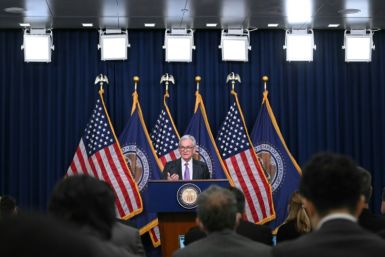Google’s Sergey Brin: Apple and Facebook Threaten Internet Freedom
Facebook and Apple are threatening the open-nature of the world wide web, according to Google co-founder Sergey Brin.
In an exclusive interview with The Guardian published this Sunday, Brin said that the Internet is facing greater threats now more than ever and that there are "very powerful forces that have lined up against the open Internet on all sides and around the world. I am more worried that I have been in the past... it's scary."
Brin said that a combination of governments controlling Internet access, the entertainment industry taking up arms against online piracy and the rise of "restrictive" so-called walled gardens such as Facebook and Apple are threatening the freedom of the Internet.
Brin also called out the amount of control Apple and Facebook have over their online platforms and user base was "stifling innovation" and "balkansing the Web".
"There's a lot to be lost," he told The Guardian. "For example, all the information in apps-that data is not crawlable by Web crawlers. You can't search it." In particular, Facebook's model is a problem for those concerned about a freer Internet.
"You have to play by their rules, which are really restrictive," Brin told the newspaper. "The kind of environment that we developed Google in, the reason that we were able to develop a search engine, is the Web was so open. Once you get too many rules, that will stifle innovation."
Brin, the 38-year-old billionaire who was the driving force behind Google's pull-out from China in 2010 over Internet censorship, said he had been proven wrong in his belief that any government could successfully restrict the Internet for very long.
"I thought there was no way to put the genie back in the bottle, but now it seems in certain areas the genie has been put back in the bottle."
Brin's comments come in a time when major forces are lobbying to control the Internet. Governments, companies, the entertainment sector have been in loggerheads with activists and hackers over the future of the Internet. Hollywood is attempting to pass legislation in the U.S. to shut down pirate websites through the Stop Online Piracy Act and the PROTECT IP Act. Brin reserved the harshest words for the entertainment industry, which he said was "shooting itself in the foot, or maybe worse than in the foot" by pushing U.S. legislators to pass these two bills.
Brin said the SOPA and PIPA bills would have led to using the same technology and approach that China and Iran use for curtailing the freedom of the Internet. People would continue to download pirated content as long as it was easier to acquire than legitimate material.
"I haven't tried it for many years but when you go on a pirate website, you choose what you like, it downloads to the device of your choice and it will just work - and then when you have to jump through all these hoops [to buy legitimate content], the walls created are disincentives for people to buy."






